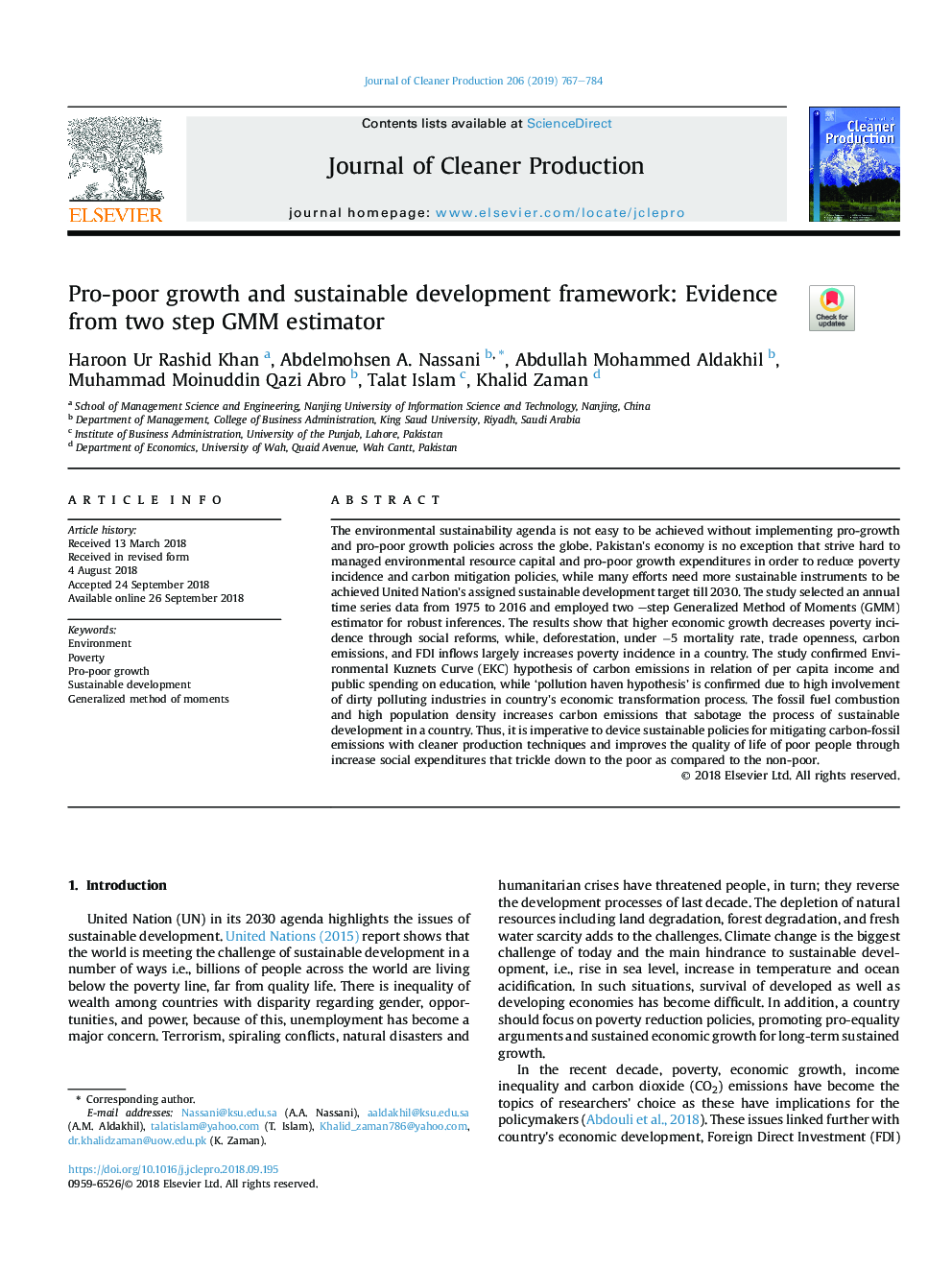| Article ID | Journal | Published Year | Pages | File Type |
|---|---|---|---|---|
| 11019797 | Journal of Cleaner Production | 2019 | 18 Pages |
Abstract
The environmental sustainability agenda is not easy to be achieved without implementing pro-growth and pro-poor growth policies across the globe. Pakistan's economy is no exception that strive hard to managed environmental resource capital and pro-poor growth expenditures in order to reduce poverty incidence and carbon mitigation policies, while many efforts need more sustainable instruments to be achieved United Nation's assigned sustainable development target till 2030. The study selected an annual time series data from 1975 to 2016 and employed two -step Generalized Method of Moments (GMM) estimator for robust inferences. The results show that higher economic growth decreases poverty incidence through social reforms, while, deforestation, under â5 mortality rate, trade openness, carbon emissions, and FDI inflows largely increases poverty incidence in a country. The study confirmed Environmental Kuznets Curve (EKC) hypothesis of carbon emissions in relation of per capita income and public spending on education, while 'pollution haven hypothesis' is confirmed due to high involvement of dirty polluting industries in country's economic transformation process. The fossil fuel combustion and high population density increases carbon emissions that sabotage the process of sustainable development in a country. Thus, it is imperative to device sustainable policies for mitigating carbon-fossil emissions with cleaner production techniques and improves the quality of life of poor people through increase social expenditures that trickle down to the poor as compared to the non-poor.
Related Topics
Physical Sciences and Engineering
Energy
Renewable Energy, Sustainability and the Environment
Authors
Haroon Ur Rashid Khan, Abdelmohsen A. Nassani, Abdullah Mohammed Aldakhil, Muhammad Moinuddin Qazi Abro, Talat Islam, Khalid Zaman,
